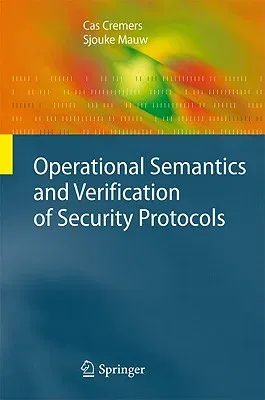Cas Cremers
(Author)Operational Semantics and Verification of Security Protocols (2012)Hardcover - 2012, 31 October 2012

Qty
1
Turbo
Ships in 2 - 3 days
In Stock
Free Delivery
Cash on Delivery
15 Days
Free Returns
Secure Checkout

Part of Series
Information Security and Cryptography
Print Length
174 pages
Language
English
Publisher
Springer
Date Published
31 Oct 2012
ISBN-10
354078635X
ISBN-13
9783540786351
Description
Product Details
Authors:
Book Edition:
2012
Book Format:
Hardcover
Country of Origin:
NL
Date Published:
31 October 2012
Dimensions:
23.39 x
15.6 x
1.27 cm
ISBN-10:
354078635X
ISBN-13:
9783540786351
Language:
English
Location:
Berlin, Heidelberg
Pages:
174
Publisher:
Weight:
439.98 gm